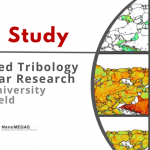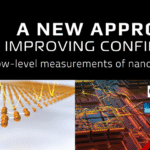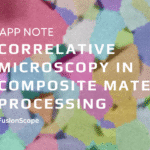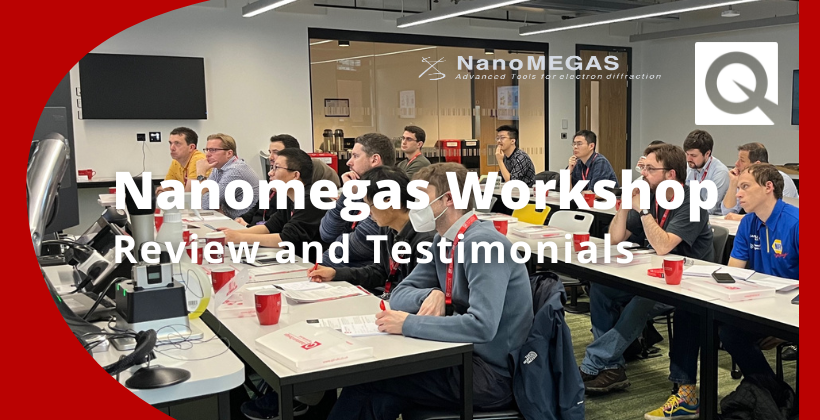
Our free workshop, “Applications of Precession Enhanced Electron Diffraction” co-hosted with Nanomegas and Manchester University was a great success. The workshop covered the theory and practical aspects of Precession Electron Diffraction and its applications which include phase orientation mapping, strain mapping, EDPF, tomography. The afternoon consisted of live demonstrations held via satellite from various locations around the globe.
About Nanomegas
“NanoMEGAS was established in 2004 by scientists active in electron diffraction and specialises in advanced electron diffraction techniques for TEM microscopes. It was the first to develop and commercialise Precession Electron Diffraction (PED) products to expand TEM analytical potential using 4D-STEM applications that include: Phase & Orientation Mapping (ASTAR) down to 1 nm scale, Strain mapping, electron Pair Distribution Function (e-PDF) for analysis of amorphous materials and 3D Diffraction Tomography for crystal structure determination of nm sized crystals. Our product range (hardware/software) is compatible with most commercial TEMs (including modern Cs corrected TEMs) and with a variety of CCD cameras/Pixelated detectors. We have worked with Quantum Design (QD) to represent NanoMEGAS to our customers in the UK and Ireland since 2013. QD has proven to be very competent, reliable, pro-active and well connected to scientific community. We have developed a good working relationship and look forward to growing with them in the future.”
Dr. Nicolopoulos Stavros
PhD Materials Science | Director and Founder NanoMEGAS SPRL, Brussels
Agenda
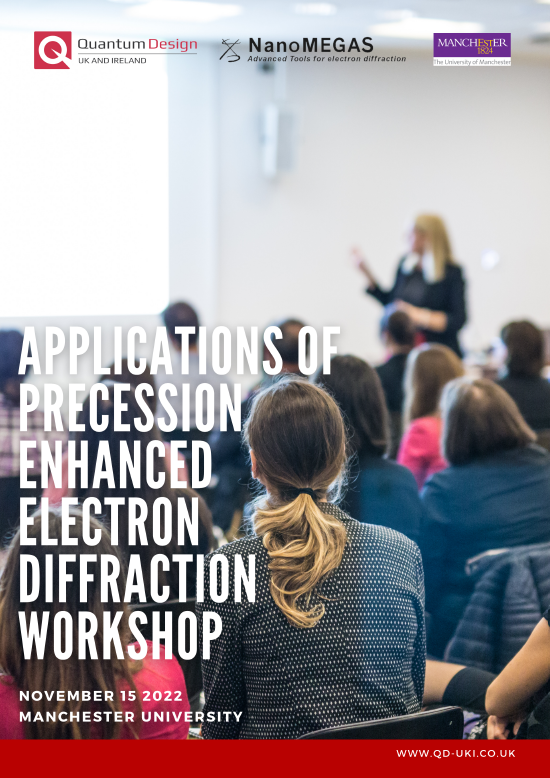
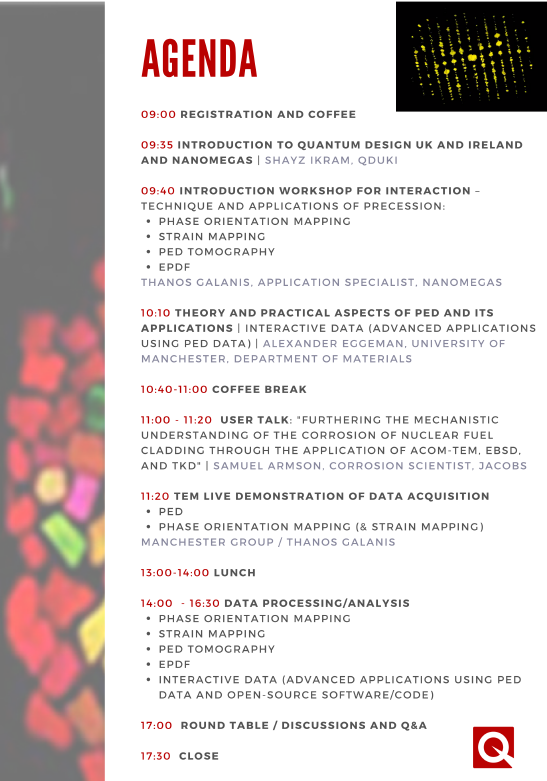
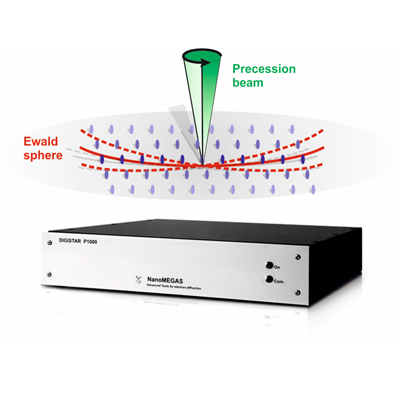
Nanomegas A-Star TEM Orientation Imaging
Nanoscale TEM Orientation Imaging Analysis
ASTAR can turn any TEM into a very powerful analytical tool enabling orientation – phase imaging at 1 nm resolution attainable (FEG TEM) in combination with other TEM analytical techniques. In combination with TOPSPIN simultaneous orientation/phase/strain /STEM maps are possible.

“We knew right away that we wanted to work with Alex Eggeman at the Department of Materials at the University of Manchester to put on this workshop. The venue is great and we really enjoyed his talk on the theory and practical aspects of PED and its applications, with the interactive data. We were glad that Samuel Armson was able to join us to furthering the mechanistic understanding of the corrosion of nuclear fuel cladding through the application of ACOM-TEM, EBSD, and TKD. We hope all the attendees enjoyed themselves, it was great to see so much interaction and collaboration. There were some fascinating discussions around Electron Diffraction and the capabilities of the Nanomegas products.”
Dr. Shayz Ikram, Technical Director, Quantum Design UK and Ireland

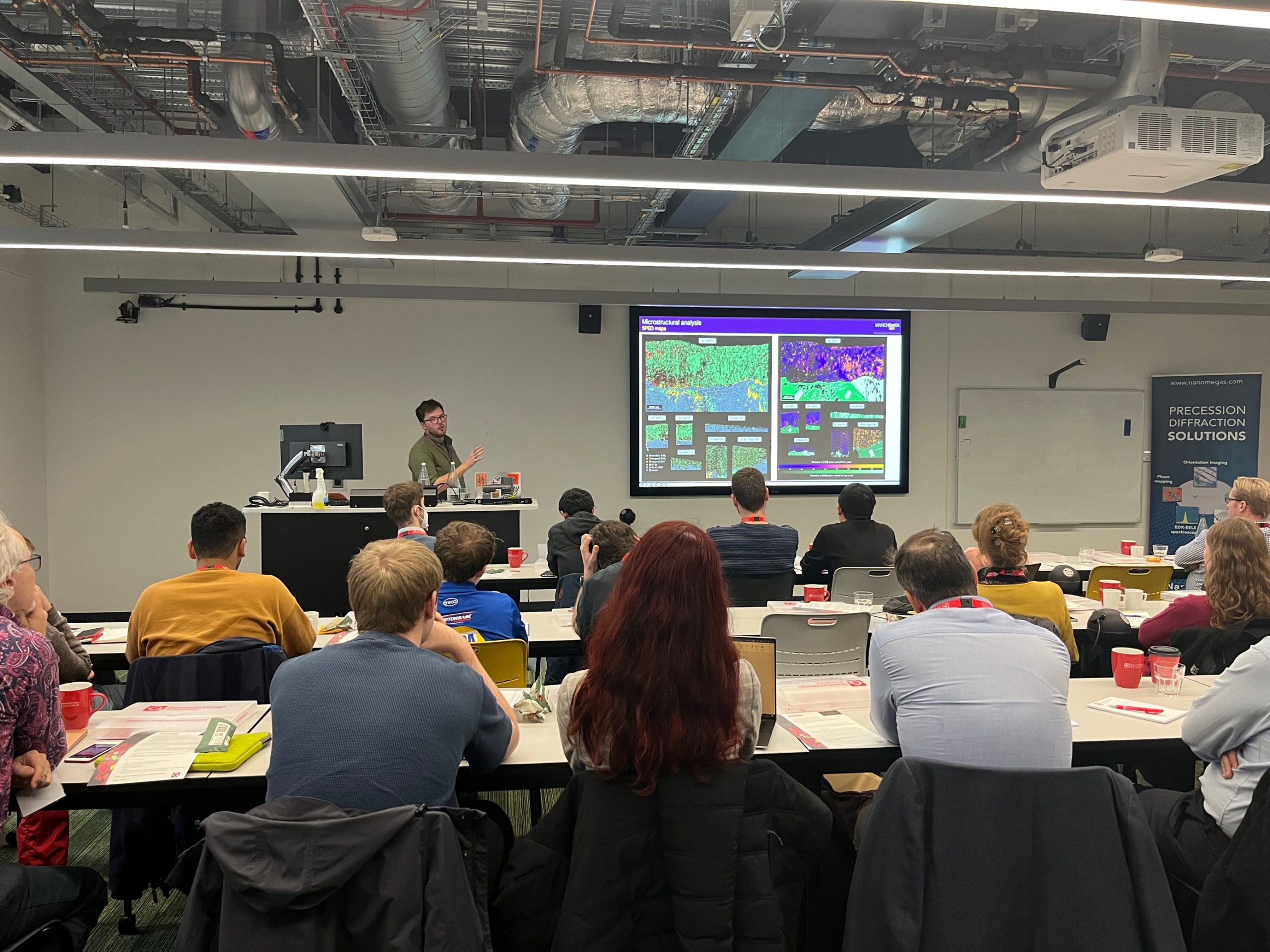
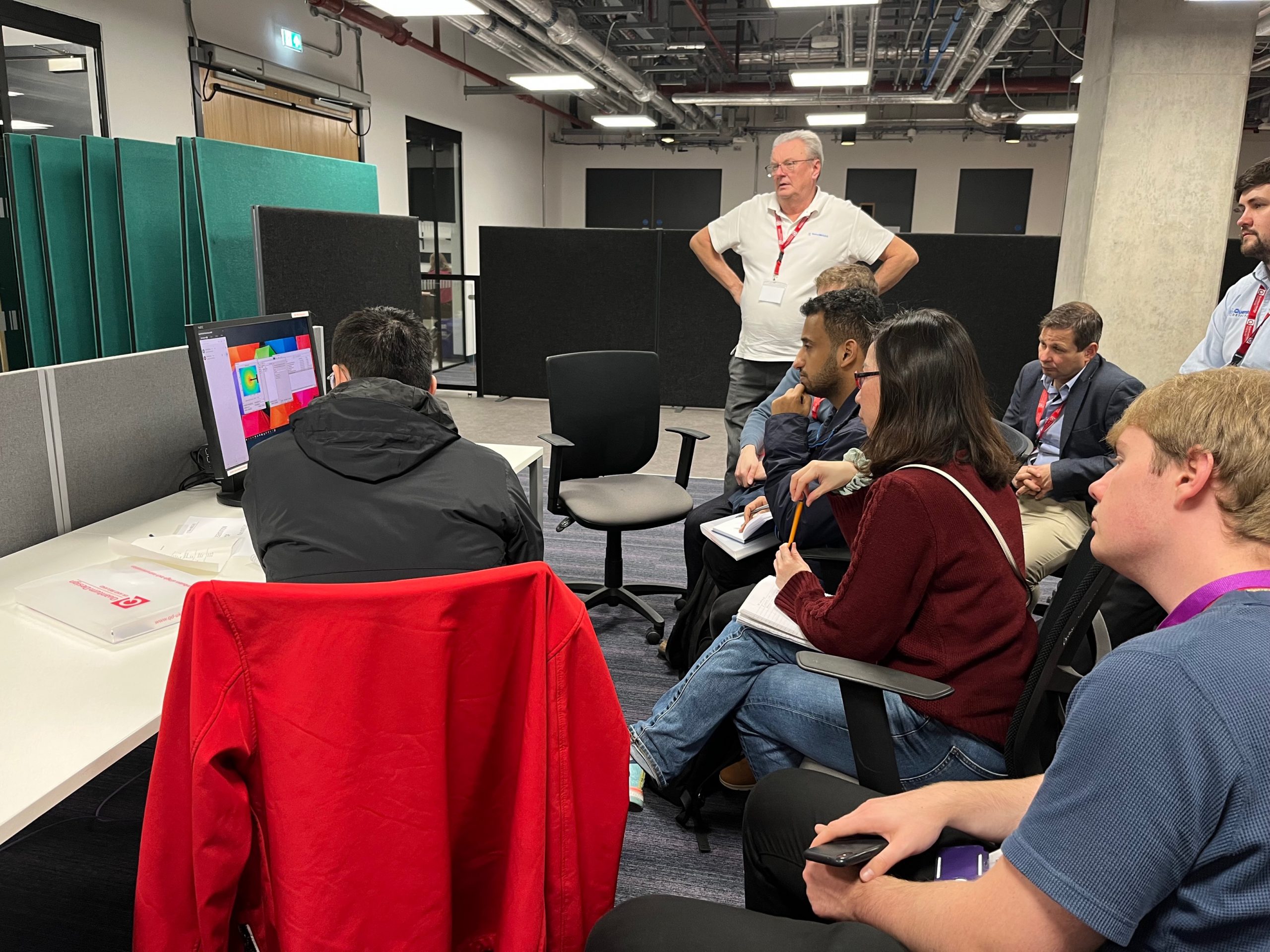
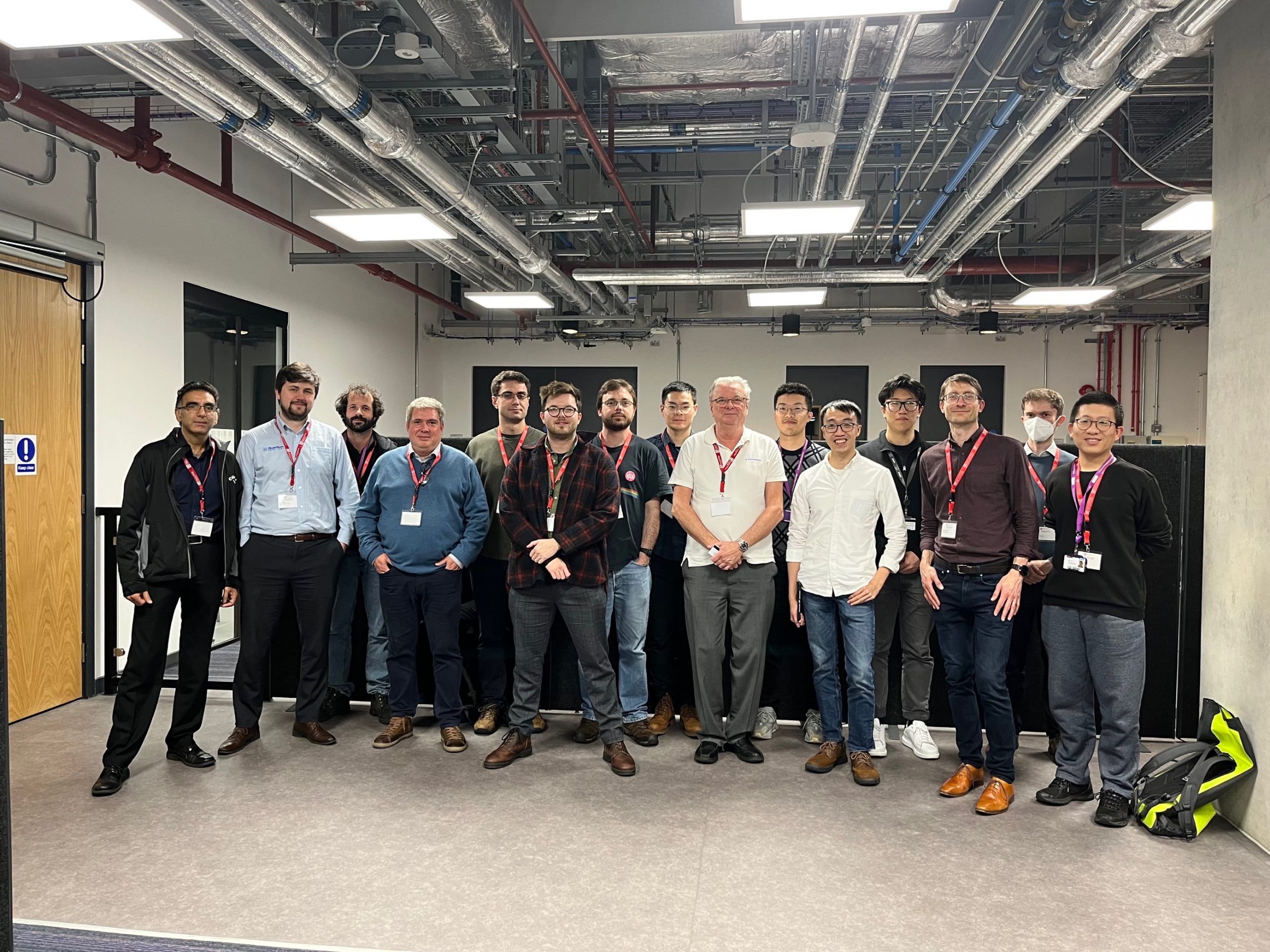
About the Workshop
The topics covered from a theoretical and practical aspect were:
- Introduction to Precession Electron Diffraction in TEM
- Phase Orientation Mapping – ASTAR
- Strain Mapping – TopSPIN
- PED Tomography – ADT3D and Micro ED
- Electron Pair Distribution function – ePDF
- Advanced processing using PED data

We were excited to host this workshop alongside our partners at Nanomegas and to bring together a range of people within industry and research. It was great to see sharing of ideas and applications and to have the Nanomegas demonstrations beamed in from around the world. QDUKI thanks our hosts Dr. Alexander Eggeman and the University of Manchester, and all the staff from Nanomegas and QDUKI who made this possible.
Angela Carslake, Business Development Manager, QDUKI
“It was excellent to have the chance to connect with other users and potential users of the Nanomegas ASTAR/TopSpin scanning precession electron diffraction system. We are particularly interested in automated crystal orientation mapping, strain mapping, and electron crystallography. It was really good to see how others are using the Nanomegas systems and to see new systems being delivered via Quantum Design UK and Ireland.”
Dr. Ian MacLaren, Reader (Physics and Astronomy), Glasgow University
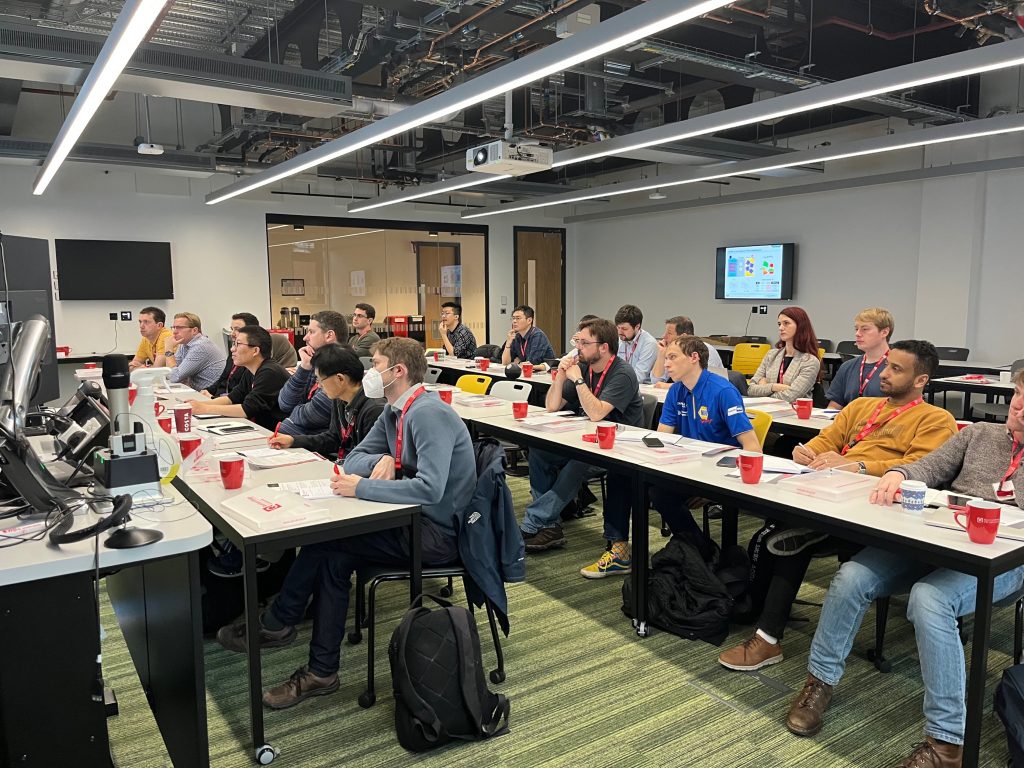
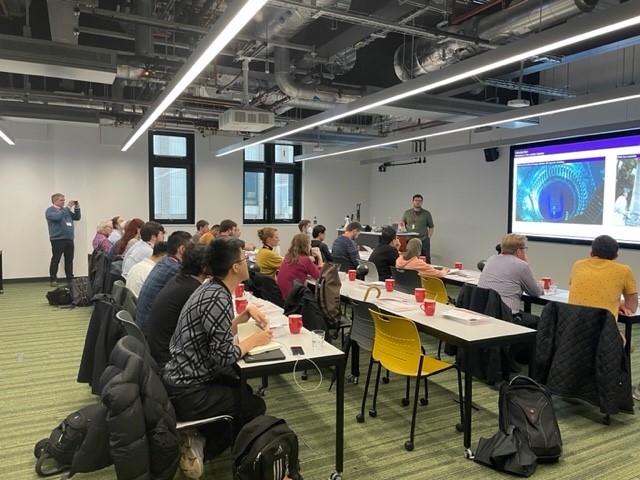
ABOUT OUR HOST
Dr Alexander Eggeman, Materials Engineering, Department of Materials, Manchester University

Dr Alexander Eggeman is an electron microscopist specialising in the use of electron diffraction techniques for the study of atomic structure in complex nanstructured materials. In addition to experimental expertise in conventional and precession electron diffraction in 2D, 3D and scanning modes Dr Eggeman also works on the use of computational methods for simulation of diffraction data and for data analysis.

Don’t want to miss out on future events? Join our mailing list and be the first to know! Join here

If you have any questions about Nanomegas or Electron Diffraction, get in touch with our Technical Director, Dr. Shayz Ikram by email or call on (01372) 378822.



